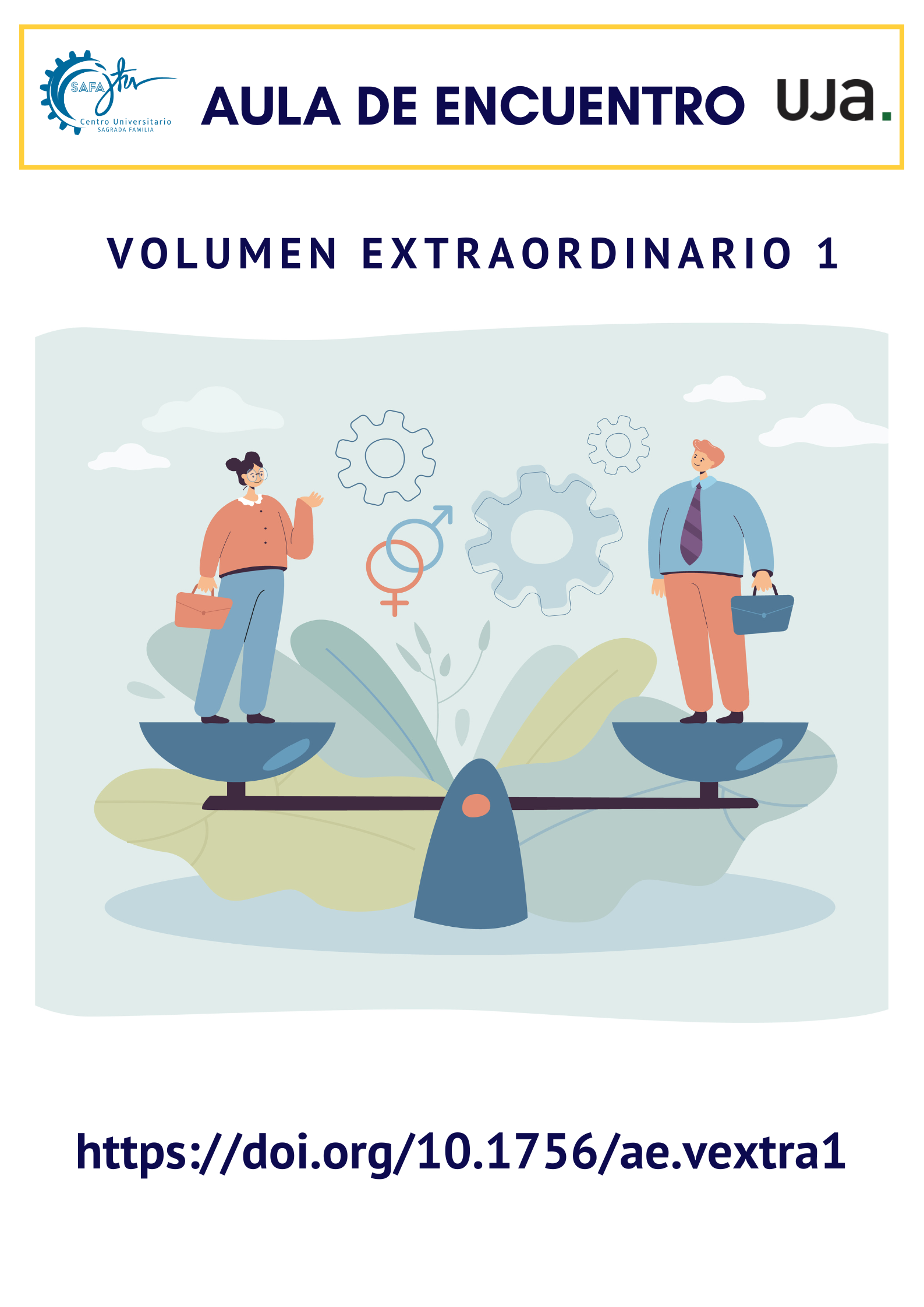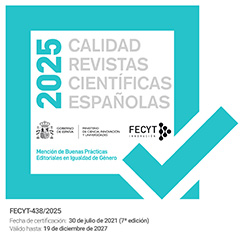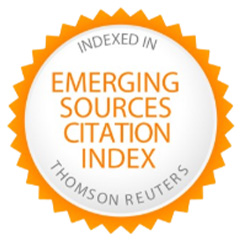La clase en regresión: racismo lingüístico y malas praxis educativas en la educación estadounidense
DOI:
https://doi.org/10.17561/ae.vextra1.7335Palabras clave:
minorías lingüísticas, pedagogía fundamentada culturalmente, malas praxis educativas, raciolingüísticaResumen
El panorama que traza Darder de la “racialización lingüística”, descrito aquí, ofrece la base de esta discusión, donde la pedagogía raciolingüística ha perpetuado un legado diverso y preocupante de malas praxis educativas hacia estudiantes infrarrepresentados de minorías lingüísticas que asisten a escuelas públicas infradotadas en los Estados Unidos. Debido, en parte, a prácticas educativas paradójicas con un acceso diferencial a recursos educativos desiguales, la gran mayoría de estudiantes privados de derechos lingüísticos son a menudo ignorados, o aún peor, están sujetos a prácticas educativas erróneas que no logran reducir las desigualdades académicas, reforzadas por la pobreza, el acceso desigual a una vivienda digna y la ausencia de destrezas pedagógicas que dispondrían del potencial de promover mejores resultados educativos. Esta discusión concluye con algunas propuestas sobre política educativa que, en caso de implementarse, podrían superar potencialmente la historia de logros académicos desiguales que ha resultado de una combinación de un apartheid educativo de iure y de facto.
Descargas
Referencias
Ball, A. (2009). Toward a theory of generative change in culturally and linguistically complex classrooms. American Educational Research Journal, 46(1), 45–72. https://doi.org/10.3102/0002831208323277
Ball, A. (2012). To know is not enough: Knowledge, power, and the zone of generativity. Educational Researcher, 41(4), 283–293. https://doi.org/10.3102/0013189X12465334
Baugh, J. (1988). Review of Twice as Less: Black English and the Performance of Black Students in Mathematics and Science, by E. W. Orr. Harvard Educational Review, 58(3), 395–403.
Baugh, J. (1999). Out of the Mouth of Slaves: African American Language and Educational Malpractice. Austin: University of Texas Press.
Brice-Heath, S. (1983). Ways with Words: Language, Life, and Work in Communities and Classrooms. Cambridge: Cambridge University Press. https://doi.org/10.1017/CBO9780511841057
Brown v. Board of Education of Topeka. (1954). 347 U.S. 483.
Charity-Hudley, A. & Mallinson, C. (2014). We Do Language: English Language Variation in the Secondary English Classroom. New York: Teachers College Press.
Darder, A. (1995). Introduction. The Politics of Biculturalism: Culture and Difference in the Formation of ‘Warriors for Gringostokia’ and ‘The New Mestizas’. In A. Darder (Ed.), Culture and Difference: Critical Perspectives on the Bicultural Experiences in the United States (pp. 1–20). Westport, CT: Bergin & Garvey.
Darder, A. (2002). Reinventing Paulo Freire: A Pedagogy of Love. Boulder, CO: Westview Press.
Darder, A. (2012). Culture and Power in the Classroom. 2nd ed. New York: Paradigm.
Darder, A., Baltodano, M. & Torres, R. D. (Eds.) (2002 / 2009). The Critical Pedagogy Reader. New York: Routledge.
Darder, A. & Torres, R. D. (2004): After Race: Racism after Multiculturalism. New York: New York University Press.
Darling-Hammond, L. (1997). The Right to Learn: A Blueprint for Creating Schools that Work. San Francisco, CA: Jossey-Bass.
Darling-Hammond, L. (2000). How teacher education matters. Journal of Teacher Education, 51(3), 166–173. https://doi.org/10.1177/0022487100051003002
Farrell, T. (1983). IQ and Standard English. College Composition and Communication, 34(4), 470–484. https://doi.org/10.2307/357902
Farrell, T. (1995). A defense for requiring Standard English. In W. A. Corvino & D. Jolliffe (Eds.), Rhetoric: Concepts, Definitions and Boundaries (pp. 667–678). Boston, MA: Allyn Bacon.
Flores, N. & Rosa, J. (2017). Unsettling race and language: Toward a raciolinguistic perspective. Language in Society, 46(5), 621–647. https://doi.org/10.1017/S0047404517000562
Freire, P. (1970). Pedagogy of the Oppressed. New York: Seabury Press.
Freire, P. (1978). Education for Critical Consciousness. New York, NY: Seabury Press.
Freire, P. (1990). We Make the Road by Walking: Conversations on Education and Social Change. Edited by B. Bell, J. Gaventa & J. Peters. Philadelphia, PA: Temple University Press.
Freire, P. (1993). Pedagogy of the City. New York, NY: Continuum.
Freire, P. (1995). Pedagogy of Hope: Reliving Pedagogy of the Oppressed. New York, NY: Continuum.
Giroux, H. (1988). Schooling and the Struggle for Public Life. Minneapolis, MN: University of Minnesota Press.
Hernstein, R. J. & Murray, C. (1994). The Bell Curve: Intelligence and Class Structure in American Life. New York, NY: Free Press.
Jensen, A. (1969). How much can we boost IQ and scholastic achievement? Harvard Educational Review, 39(1), 1–123. https://doi.org/10.17763/haer.39.1.l3u15956627424k7
Labov, W. (1972). Language in the Inner-City: Studies in the Black English Vernacular. Philadelphia, PA: University of Pennsylvania Press.
Labov, W. (1982). Objectivity and commitment in linguistic science: The case of the Black English trial in Ann Arbor. Language in Society, 11(2), 165–201. https://doi.org/10.1017/S0047404500009192
Ladson-Billings, G. (2009). The Dream Keepers: Successful Teachers of African American Children. 2nd ed. San Francisco, CA: Jossey-Bass.
Ladson-Billings, G. (2021). Culturally Relevant Pedagogy: Asking a Different Question. New York, NY: Teachers College Press.
Lau v. Nichols. (1974). 414 U.S. 563.
Orr, E. W. (1987). Twice as Less: Black English and the Performance of Black Students in Mathematics and Science. New York, NY: W. W. Norton & Company.
Paris, D. & Alim, H. S. (2017). Culturally Sustaining Pedagogies: Teaching and Learning for Justice in a Changing World. New York, NY: Teachers College Press.
Seymour, H. & Seymour, C. (1979). Ebonics and public law 94-142. Journal of Black Studies, 9(4), 449–468. https://doi.org/10.1177/002193477901000208
Shockley, W. (1971). Negro IQ deficit: Failure of a ‘malicious coincidence’ model warrants new research proposals. Review of Educational Research, 41(3), 227–248. https://doi.org/10.3102/00346543041003227
Shulman, L. (1986). Those who understand: Knowledge growth in teaching. Educational Researcher, 15(2), 4–14. https://doi.org/10.3102/0013189X015002004
Shulman, L. (1987). Knowledge and teaching: Foundations of the new reform. Harvard Educational Review, 57(2), 1–22. https://doi.org/10.17763/haer.57.1.j463w79r56455411
Smitherman, G. (Ed.). (1983). Black English and the Education of Black Children and Youth: Proceedings of the National Invitational Symposium on the King Decision. Detroit, MI: Wayne State University Press.
Steele, C. (1999). “Thin Ice: Stereotype Threat and Black College Students” The Atlantic: August Issue.
Stockman, I. (2008). Toward validation of a minimal competence phonetic core for African American children. Journal of Speech, Language, and Hearing, 51(5), 1244–1262. https://doi.org/10.1044/1092-4388(2008/07-0081)
Vaughn-Cooke, F. (2007). Lessons learned from the Ebonics controversy: Implications for language assessment. In R. Bayley & C. Lucas (Eds.), Sociolinguistic Variation: Theories, Methods, and Applications (pp. 254–275). Cambridge: Cambridge University Press.
https://doi.org/10.1017/CBO9780511619496.014
Washington, J. & Craig, H. (2004). A language screening protocol for use with young African American children in urban settings. American Journal of Speech and Language Pathology, 13(4), 329–340. https://doi.org/10.1044/1058-0360(2004/033)
Williams, R. (1975). Ebonics: The True Language of Black Folks. St. Louis, MO: Williams and Associates.
Williams, R. (1981). The Collective Black Mind: Toward an Afrocentric Theory of Black Personality. St. Louis, MO: Robert Williams and associates.
World Population Review. (2021). Per Pupil Spending by State.
https://worldpopulationreview.com/state-rankings/per-pupil-spending-by-state
Wyatt, T. (2015). Contemporary approaches and perspectives for assessing young and school-age African American English speakers. In S. Lanehart (Ed.), The Oxford Handbook of African American Language (pp. 526–543). New York, NY: Oxford University Press.
Descargas
Publicado
Número
Sección
Licencia
Derechos de autor 2022 John Baugh

Esta obra está bajo una licencia internacional Creative Commons Atribución 4.0.
Los autores que publican en esta revista están de acuerdo con los siguientes términos:
- Los autores conservan los derechos de autor y garantizan a la revista el derecho de ser la primera publicación del trabajo al igual que licenciado bajo una Creative Commons Attribution License que permite a otros compartir el trabajo con un reconocimiento de la autoría del trabajo y la publicación inicial en esta revista.
- Los autores pueden establecer por separado acuerdos adicionales para la distribución no exclusiva de la versión de la obra publicada en la revista (por ejemplo, situarlo en un repositorio institucional o publicarlo en un libro), con un reconocimiento de su publicación inicial en esta revista.
- Se permite y se anima a los autores a difundir sus trabajos electrónicamente (por ejemplo, en repositorios institucionales o en su propio sitio web) antes y durante el proceso de envío, ya que puede dar lugar a intercambios productivos, así como a una citación más temprana y mayor de los trabajos publicados (Véase The Effect of Open Access) (en inglés).
![]()
Este obra está bajo una licencia de Creative Commons Reconocimiento 4.0 Internacional.















